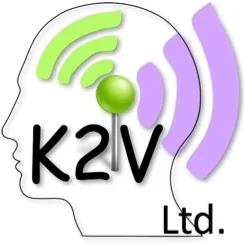Knowledge has always been essential for balanced decision making but what has changed which makes it crucial to start managing knowledge within your organisation now more than ever?
The increased competitive landscape has accelerated the pace of New Venture projects; projects that are often pulled before they are completed, resulting in little or no documentation leading to a loss of knowledge transfer.
The energy transition has forced lay-offs across the board, which when combined with increased lateral mobility of professional staff in the last 2 decades, has resulted in companies haemorrhaging knowledge; failure to tap in to residual and incoming knowledge ensures a knowledge deficit for your organisation.
As individuals, the combination of increased complexity of specialised expertise and increasing breadth of demands made on us in the work place (e.g. IT and HR overheads) means that we risk becoming generalists. But that expertise is there; we rarely actually know about it.
Staff recruitment tends to focus on educationally proven ability with capacity and skills being key but seldom do we ask what an individual knows and where that knowledge has been acquired. Corporate globalisation has effectively marketised the professional workforce by trading brand loyalty for lateral mobility. This means that natural attrition is replaced by mature hires as well as new recruits (new talent), which is part of essential rejuvenation of any organisation. If the use of knowledge to attain our goals really is the seat of rational thought (Pinker, 2021) then what greater incentive can decision makers have for engaging knowledge?
Increased awareness of knowledge value, cognitive bias and perceptual blindness combined with the ready availability of global platforms means that we have no excuse anymore for overlooking knowledge in our respective organisations. Pioneering work from individuals in the Oil and Gas sector like Marc Bond (Rose & Associates) have been helping us to mitigate against the affects of cognitive bias and perceptual blindness, whereas others like Draupner Energy have been leading the way creating value by crowd-sourcing outside of corporate entities or within interested communities as knowledge holders. New ground-breaking research on information searching in the oil & gas enterprise (by Paul Cleverley of Robert Gordon University) is teaching us that curiosity and creativity can be stimulated by novel search interfaces and algorithms. These can help mitigate 'tunnel vision' and 'cognitive bias' where current search systems that rank using popularity, may hide potential knowledge because of its obscurity. Five years on, K2V is now in a position to offer the industry the first structured approach to creating value from knowledge specifically for exploration growth in the oil & gas sector (click here to read a short article): an organisation that ignores knowledge owned by that organisation is setting itself up for failure as assuredly as ignoring data.
Click here to see a discussion on why knowledge is important to the oil & gas sector
OR
NEXT: click here to see what the common challenges are facing organisations?

